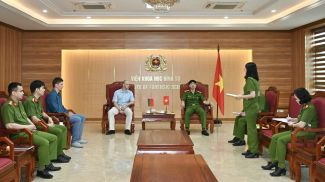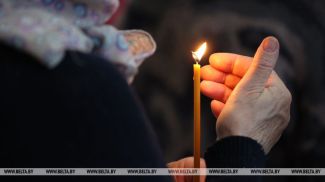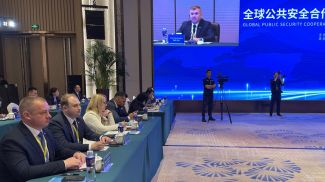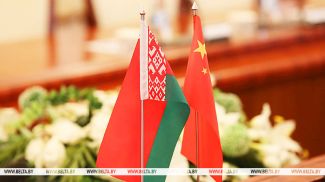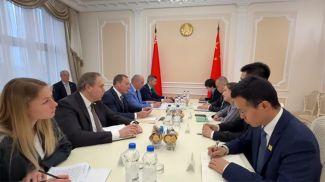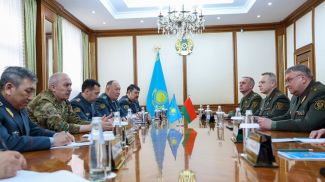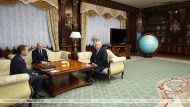MINSK, 11 December (BelTA) – We cannot view the past and the present through the lens of Telegram channels, Deputy Head of the Belarus President Administration Andrei Kuntsevich said during the roundtable "Patriotic education as a means to counteract Nazism and extremism" at the Belarusian State Museum of the Great Patriotic War in Minsk on 11 December, BelTA has learned.
“First of all, I would like to take note of the activity of our MPs and their willingness to discuss the most pressing problems concerning the development of society and the state. I believe that the topic of today's roundtable is among them. We really need to look more substantively at the issues of patriotic education and civic upbringing. We want Belarusians to feel part of one nation, to be proud of their rich history and to rally together around the idea of building the first ever sovereign Belarusian state, to build Belarus of the future together," Andrei Kuntsevich said.
The deputy head of the President Administration noted that the path of Belarusians to their own statehood was not easy and was long. “Every step our people have taken along the way deserves respect and dignified attitude of the current generation of Belarusians. This is all our history, no matter what period we are talking about. Whether it the time of the Principality of Polotsk or the Soviet period - this is our common state biography, from which we cannot just remove the pages for the sake of someone's interests or to fit the stereotypes imposed from outside,” he stressed.
Andrei Kuntsevich believes that the state historical policy aimed at consolidating the national concept of the historical past, the Belarusian model of memory needs to be further developed. “Today some are dissatisfied that we pay a lot of attention to the Great Patriotic War. Yes, indeed, the history of Belarus did not begin in 1941 or in 1945. But it may well have ended in these years, were it not for the courage and selfless heroism of all the Soviet people and Belarusians in particular. Some 1.3 million of our compatriots fought on various fronts, more than 300,000 of them were awarded military awards, orders and medals. Between 2.5 million and 3 million Belarusians fell victims of that war. Today we are offered to forget this, to belittle this period of our history. I believe that we have no right to accept this interpretation,” Andrei Kuntsevich noted.
Joint efforts of MPs, historians, and social activists will prevent Belarusians from forgetting those times, from re-interpreting collaborationism, and whitewashing the symbols of Nazi supporters, Andrei Kuntsevich believes. “We should look at history, the past, and the present with our eyes wide open, not through Telegram channels,” he said.
According to Andrei Kuntsevich, the current patriotic upbringing should be more consistent. In his opinion, visits to sites of military glory and war memorials will help the youth explore the country's heroic past better. “For some reason, trips to such places are not always mandatory. For example, in 2019, only every 11th school student visited the Brest Hero Fortress and only every 15th paid their respects to the victims of the Khatyn tragedy. This year, these numbers have been even smaller, for obvious reasons. I am sure: those who have visited the Khatyn Memorial or similar sites at least once will surely pause to think whether they want to join the banner of collaborationists, the flag that is stained with the blood of their compatriots,” he noted.
The roundtable “Patriotic education as a means to counteract Nazism and extremism” was organized by the Education, Culture, and Science Commission of the House of Representatives of the National Assembly of Belarus. It brought together MPs, representatives of ministries and other government agencies, the Belarusian State Museum of the History of the Great Patriotic War, the National Archives, the National Library, and the National History Museum of Belarus. “I hope that this discussion will help MPs gather materials for future legislative acts,” Andrei Kuntsevich noted.




